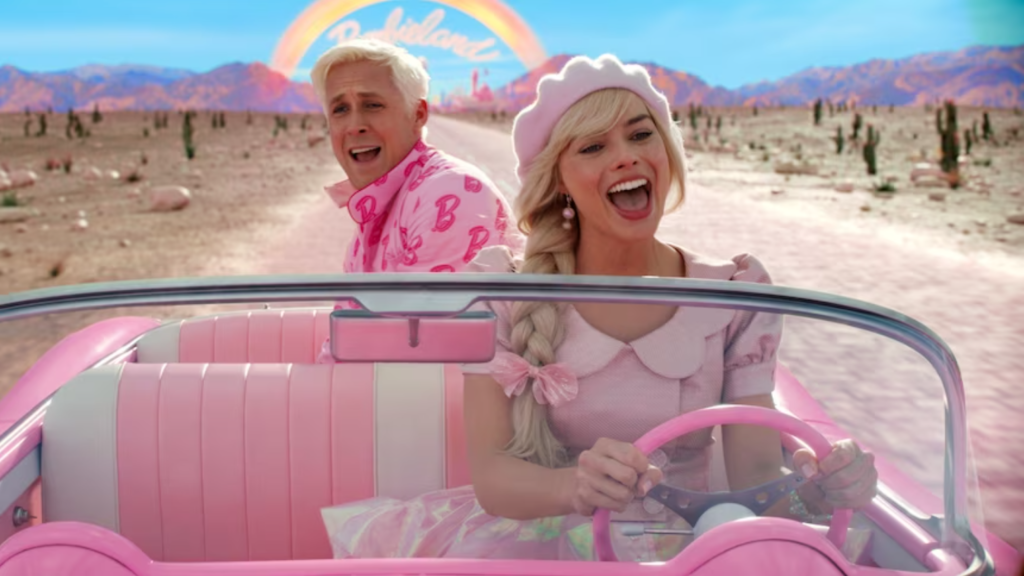‘Barbie’ makes history with $1 billion at the box office – CNN

|
Getting your Trinity Audio player ready...
|
SOURCE: Eva Rothenberg | CNN
“Barbie” has answered the billion-dollar question with a resounding “yes.” Barely three weeks into its run, writer-director Greta Gerwig’s blockbuster has raked in an astounding $1.03 billion at the global box office, according to official Warner Bros. estimates. This makes Gerwig the first solo female director with a billion-dollar movie.
As one half of the viral “Barbenheimer” phenomenon, it isn’t shocking “Barbie” has performed well. And, standing on her own two feet, the doll’s incredible success is not unexpected at all.
“I’ve been in this game for 30 years and the Barbie and Barbenheimer phenomenon is as unprecedented as it was unpredictable,” said Paul Dergarabedian, senior media analyst at Comscore.
According to Dergarabedian, only about 50 films in history, unadjusted for inflation, have hit the billion-dollar mark.
He added the movie’s marketing campaign was the first hint “Barbie” would be a box office smash. “The marketing campaign for ‘Barbie’ set into motion a chain of events that led to the word ‘Barbenheimer’ being added to the popular lexicon by virtue of its shared release date with ‘Oppenheimer,’ and that’s when we all knew something very special and unique was going to create a much bigger than expected outcome for the film not only for the opening weekend, but for its global run in theaters.”
The Barbie and Barbenheimer phenomenon is as unprecedented as it was unpredictable
In an interview with Collider last month, Margot Robbie — who produced the movie in addition to playing the titular character — shared a premonition she had at a greenlight meeting with studios.
“I think I told them they’d make a billion dollars which, maybe I was overselling, but we had a movie to make!” she said.
“Barbie” was distributed by Warner Bros., which is owned by CNN’s parent company Warner Bros. Discovery.
Its global success was driven by box office sales in some of the world’s largest movie markets, including the United Kingdom, Mexico and Australia. The movie has been the No. 1 release in these markets every weekend since its release, according to tracking site Box Office Mojo.
“Barbie” also performed well in China, the second-largest market in the world and one that has becoming increasingly insular over the past few years. According to experts, franchise films like “Transformers,” “Fast and Furious,” and Marvel’s superhero movies tend to perform well with Chinese audiences. While “Barbie” is similar to “Transformers” in that it’s based on an existing toy, it’s “not an IP that generations of Chinese have grown up with, so you lack the intergenerational appeal that a film like ‘Barbie’ has in the United States,” said Michael Berry, director of UCLA’s Center for Chinese Studies.
The film exploits [Barbie’s] name-recognition in a very savvy way by playing into both the Barbie lovers and Barbie haters.
But Berry, who researches Chinese cinema and pop culture, says Barbie is still iconic around the world, giving the movie a solid springboard for international acclaim.
“Children in hundreds of countries… have grown up with the dolls, her imagery… (but) the film exploits that name-recognition in a very savvy way by playing into both the Barbie lovers and Barbie haters,” he said. “The film is also able to deftly walk a tightrope that appeals to both naïve and wide-eyed eight-year-old dreamers, who approach the film on one level, and adult audiences, who are able to interpret the film on an entirely different level, full of irony, humor, sexual innuendos, and allegory.”
“Barbie” has become everything from a relationship litmus test to a celebration of womanhood for people who may have come for the hot-pink outfits and stayed for the film’s existential questions.
“Driving that discourse is the film’s embrace of what generations of women have both loved and hated about the brand and what it’s often represented in the past,” said BoxOffice Pro chief analyst Shawn Robbins, adding that the movie “has tapped into cultural conversations about gender roles and female empowerment that aren’t bound by international borders.”
.
This article was originally published on CNN. You can view the original article here.


